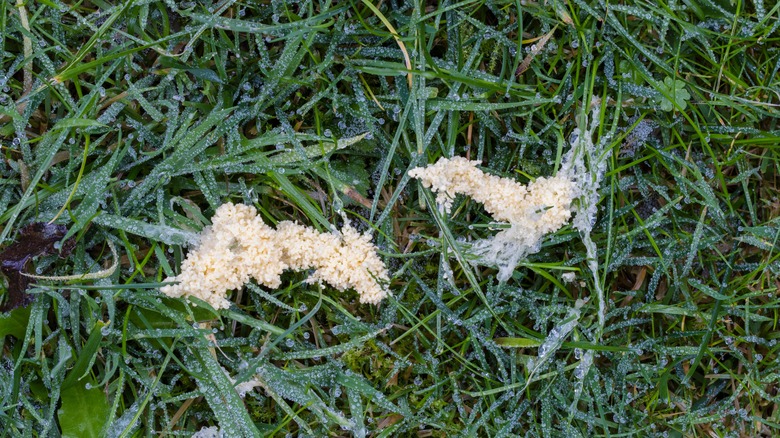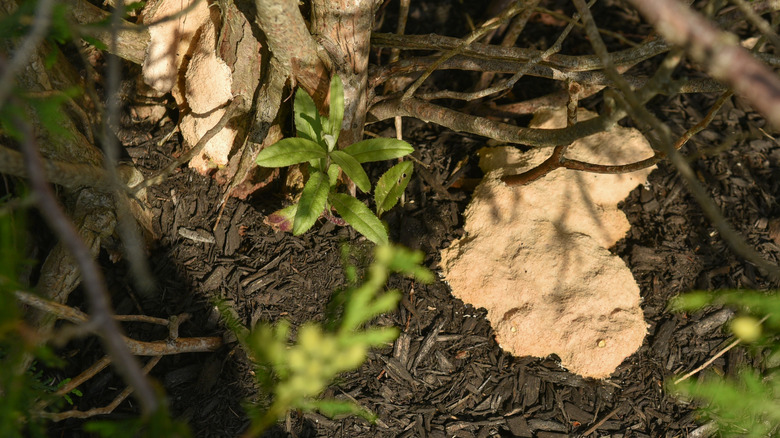How To Easily Take Care Of Unwanted Slime Mold On Your Grass
Have you ever stepped outside to admire your garden and stumbled upon a bizarre, gelatinous, and seemingly otherworldly (and rather disgusting) substance clinging to your grass or mulch? It's called slime mold, and it can be a bit of a shock to see it for the first time. But did you know that slime mold isn't actually a true mold, nor is it a threat to your lawn's well-being in the conventional sense? It's a fascinating organism belonging to the kingdom known as Protoctista, distinct from fungi, bacteria, or plants. That being said, you likely will still want to get rid of it, even if just based on how you'd like your lawn to appear.
Slime mold thrives in various environments and its unique appearance can make it a bit of a conversation starter. If you encounter slime mold on your grass, you have a couple of options. There are a few easy ways you can remove it and maintain a pristine, green lawn. Or, you can also choose to let nature run its course and leave it alone.
What to do about slime mold
If you're struggling with unwelcome slime mold on your lawn, there are effective methods you can use. One of the most straightforward approaches involves using a garden rake. Gently rake the affected area, being careful not to damage the grass underneath. Once the slime mold is collected, place it in a sealed container or bag to prevent it from spreading. Remember to dispose of the container in your trash bin to avoid any possibility of the slime mold returning to your garden.
For smaller areas, you can remove the slime mold manually by carefully picking it up using a pair of disposable gloves and placing it in a sealed bag. Another method is to use a garden hose. The force of water from the hose can dislodge slime mold from the grass blades and wash it away. This method is gentle on the lawn and does not require physical removal, however, it may not be as effective for larger infestations.
Why you can leave slime mold alone
Leaving slime mold undisturbed is a choice that aligns with a more natural approach to lawn care. Like many organisms in nature, it plays a role in the ecological balance of your garden. Slime mold helps break down organic matter and recycles nutrients back into the soil, benefiting the overall health of your lawn. This mold is usually a transient guest. It typically appears when environmental conditions, such as excess moisture and humidity, are favorable for its growth. Once these conditions change, slime mold tends to diminish naturally.
It's important to note that slime mold won't directly damage your grass. If you decide to leave it alone, just monitor the affected areas. By keeping an eye on it, you can ensure it doesn't spread excessively or prevent grass from receiving adequate sunlight. Also, avoid touching it with bare hands as it can irritate sensitive skin.

